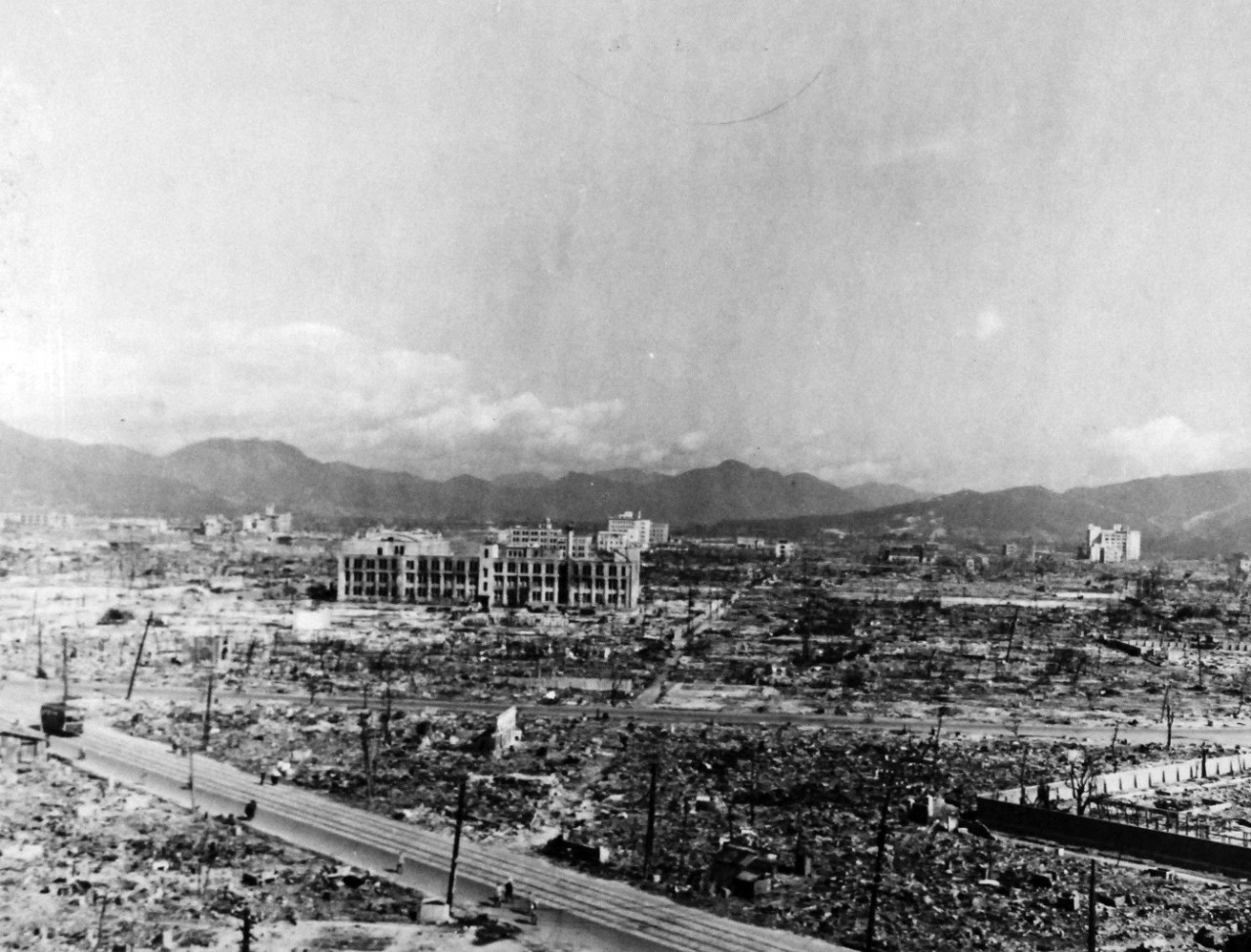
Remembering Hiroshima and Nagasaki, 75 Years After
Seventy-five years ago, the United States conducted two nuclear attacks against the cities of Hiroshima and Nagasaki, Japan, devastating their populations and destroying their infrastructure.
In the process of manufacturing and testing the nuclear weapons that would eventually be used on Hiroshima and Nagasaki, civilians within downwind communities, nuclear workers, uranium miners and their families, and military personnel were also exposed to harmful and sometimes deadly levels of ionizing radiation. Following their use in Japan, the production and past testing of nuclear weapons in the United States and internationally continues to harm the health, environment, and cultures of communities around the world.
In the United States, we are commonly told that creating and dropping these nuclear bombs was “necessary” in order to end the Second World War and save additional lives. As several prominent historians have detailed extensively, this narrative is oversimplistic and ahistorical: the bombs were never intended to take the place of an invasion, and it is not even clear that they directly brought about the end of the war in the way that is often portrayed. Primary documents show that the commonly-taught narrative about the two atomic bombings can be easily deconstructed. Additionally, these nuclear bombings followed devastating conventional firebombings of Japanese cities that were specifically designed to target civilians and infrastructure.
Seventy-five years later, we commemorate the nuclear attacks and the unspeakable human suffering they inflicted, which remind us of the uniquely destructive capability of nuclear weapons and the importance of ensuring that they are never used in anger again.
In recognition of this 75th anniversary, the Federation of American Scientists is honored to join a coalition of nuclear weapons organizations and survivors in calling for our leaders to take the actions necessary to ensure nuclear weapons are never used again and to negotiate in good faith the global elimination of these most devastating weapons of mass destruction.
As our coalition statement reads,
Today, we are living in a time of extraordinary nuclear dangers. Vital international agreements to reduce and control nuclear weapons worldwide are being abandoned. Budgets for the development and production of new nuclear weapons are growing. Tensions among nuclear-armed nations are rising to levels not seen since the Cold War.
As the mayors of Hiroshima and Nagasaki warn: “We are badly off course in efforts to honor the plea of the hibakusha and end the nuclear threat.”
As the only country to use nuclear weapons in conflict, the United States has a moral obligation to lead the world in ending this menace and restoring communities impacted by nuclear weapons.
People created these weapons and designed the systems governing their use; people can work to eliminate them.
As we wrote on the 75th anniversary of the Trinity test, we are trending in the wrong direction. Despite reductions since the Cold War, there are still more than 13,000 nuclear weapons in the world, and every nuclear-armed country is currently in the midst of modernizing their nuclear arsenals. Disturbingly, bilateral and multilateral arms control agreements have fallen away or are currently under severe stress. Most immediately concerning is New START, which effectively limits US and Russian strategic warhead and launcher deployments, but expires in February 2021. As we have written, New START extension is a no-brainer: Russia and the United States can extend the New START treaty by up to 5 more years. It is essential both sides act responsibly and do so to preserve this essential agreement.
The Federation of American Scientists is honored to provide the world with the best non-classified estimates of the nuclear weapons arsenals. We are grateful for the financial support from the New Land Foundation, MacArthur Foundation, Ploughshares Fund, and the Prospect Hill Foundation to do this work. To explore this vast data, developed over many decades, start here.
The last remaining agreement limiting U.S. and Russian nuclear weapons has now expired. For the first time since 1972, there is no treaty-bound cap on strategic nuclear weapons.
The Pentagon’s new report provides additional context and useful perspectives on events in China that took place over the past year.
Successful NC3 modernization must do more than update hardware and software: it must integrate emerging technologies in ways that enhance resilience, ensure meaningful human control, and preserve strategic stability.
The FY2026 National Defense Authorization Act (NDAA) paints a picture of a Congress that is working to both protect and accelerate nuclear modernization programs while simultaneously lacking trust in the Pentagon and the Department of Energy to execute them.